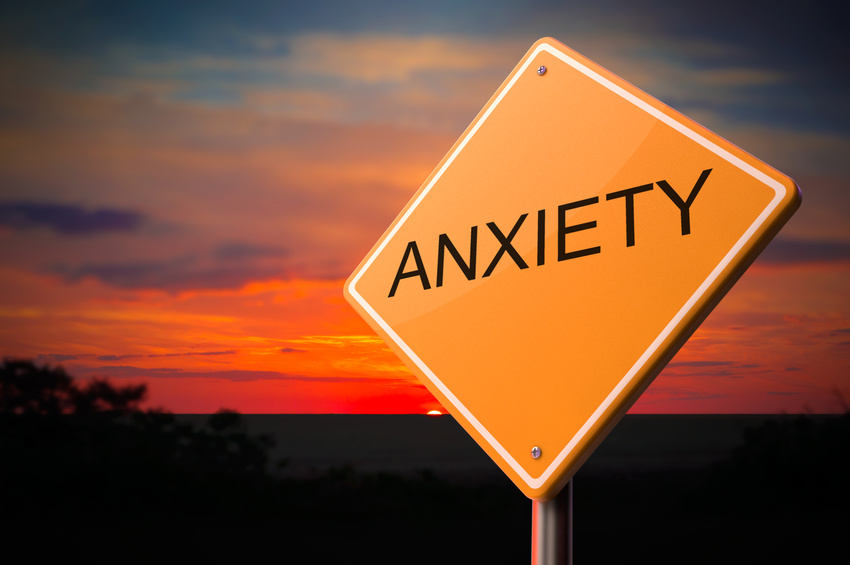The problem with anxiety is that it’s tricky and there’s a fair amount of misinformation out there. If you’re like many others who suffer from anxiety, there’s a good chance that your anxiety has convinced you of some fairly unhelpful facts. Add that to the misinformation that is passed to us from the general public (partially informed by Big Pharma), and we end up believing some pretty unhelpful things.
Myth #1: We have anxiety because of our chemical makeup and our genes
I don’t mean to downplay the importance of biology here, and there is some indication that people can inherit a predisposition for anxiety. However, inheriting a predisposition is a far cry from inheriting an anxiety disorder or even saying that it is likely someone will be anxious because other members of their family also suffer.
The evidence points to the fact that genes contribute (at best) 30 to 40 percent to your anxiety disorder. This means that 60 to 70 percent of an individual’s anxiety problems are not biologically based. In fact, the much larger reason that anxiety sufferers often exist within the same family is that anxiety is a learned behavior. This is actually good news because it turns out that humans tend to be better at changing their behaviors then changing their genetic makeup.
Myth # 2: It is abnormal to have high levels of anxiety
It’s very important for humans to have the capacity to strongly feel and experience anxiety and fear. Intense anxiety and fear exists because it helps to keep us safe when there is danger in our environments, as well as motivating us to take action to improve our situations.
It’s certainly true that many individuals experience fear and anxiety even when there doesn’t seem to be a threat or good reason to have such feelings. This can be a problem.
However, It’s not the feeling of anxiety that’s the problem. The problem is how we behave when we have anxiety. Do we freeze? Do we avoid? Do we stop doing things that are important to us. Often the answer is yes. It’s these behavioral responses that cause problems in our lives, not the feeling of fear or anxiety.
Myth # 3: Anxiety is a sign that something is wrong with me or I’m weak
Anxiety is definitely not a sign that there is something wrong with you or that you are broken, weak, incompetent, lazy, etc. Anxiety is a natural emotion that everyone experiences.
Anxiety is tricky because it’s a private experience. Nobody else can see or experience it, and nobody else even knows it’s there unless you tell them. The reverse of this is true as well. All those people who are walking around looking like they have their stuff together? They have anxiety too! Maybe not like yours and maybe they react differently when they have it, but they still have it.
Having anxiety is part of the human condition. When there are things that are vitally important to us, there will also be pain, uncertainty, fear, sadness, etc. So, anxiety isn’t a sign of weakness. It’s a sign that you are alive.
Myth # 4: You must get rid of your anxiety in order to live the life you want
Have you put your life on hold because of anxiety? When it shows up in your life, have you stopped doing things that are important to you? Anxiety stinks! It’s highly unpleasant and it’s tricky! Your anxiety wants you to believe that you can’t live your life until you’ve dealt with it. Unfortunately, the things that we do to avoid and get rid of our anxiety also tend to be the things that make our anxiety worse.
The goal of getting rid of anxiety is an understandable goal, yet it also happens to be nearly impossible. Remember, every living person has anxiety, and you can’t eradicate your capacity to feel afraid (without a lobotomy – which I’m not recommending). It’s also not our anxiety that causes problems in our lives, it’s how we behave when anxiety shows up that causes problems.
Your anxiety will try and convince you to put your life on hold. It will hijack your life and stop you from doing things that are important to you. Even when your anxiety tells you this, it is still possible to do things that are important to you. We all have the capacity to carry our thoughts and feelings with us (even unpleasant ones) as we engage with the world around us. Anxiety will come and go, but we only have one life.
I realize that it’s very easy for me to say these things, and a completely different story for someone with clinical anxiety to actually start making changes in their lives. Oftentimes they may be feeling completely overwhelmed and paralyzed by their anxiety.
However, it’s important to remember that effective, evidence-based treatments for anxiety have been consistently shown to help anxiety sufferers change their relationship to their symptoms and to take their lives back from the clutches of anxiety.
